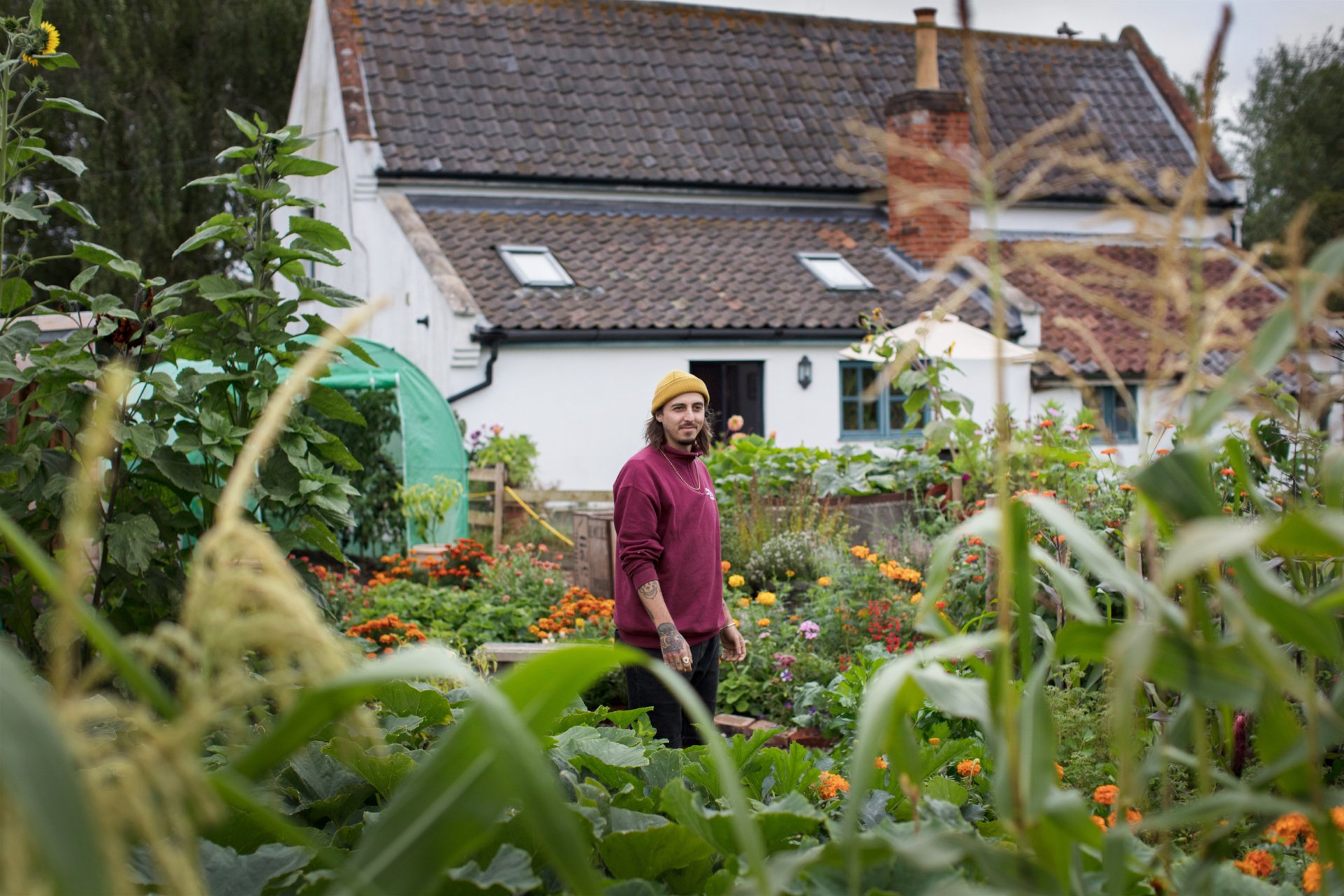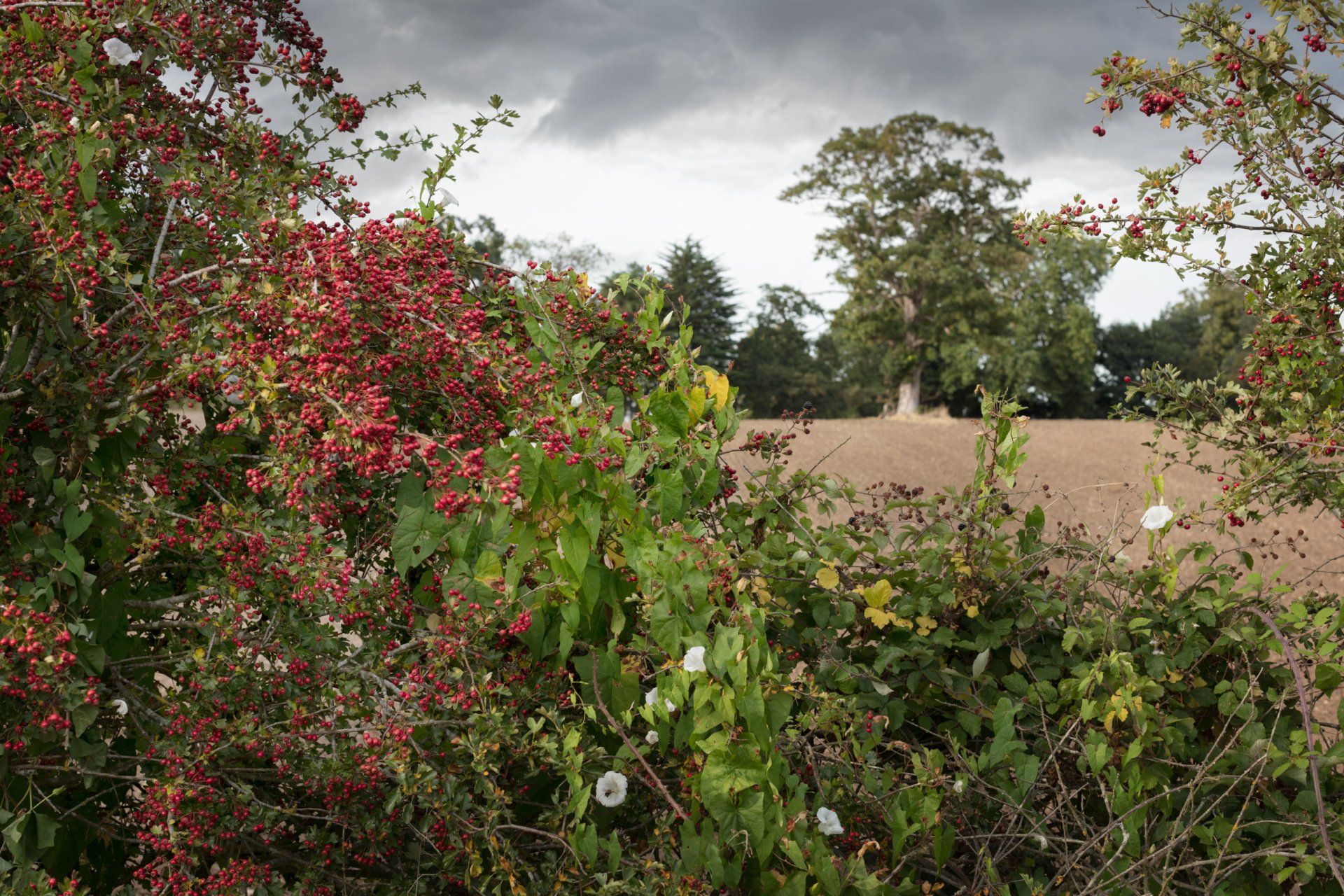Growing With Nature
Mitch McCulloch is on a mission to grow some of East Anglia's most beautiful (and delicious) vegetables, whilst making space for nature.
He swapped East London for East Anglia before the first lockdown and hasn't looked back. Mitch's Suffolk garden is a testament to his passion for no-dig growing and companion planting. The benefits to soil health and biodiversity being wide-ranging, as he explains here.

I'm Mitch, in September 2020 I switched East London for The East Coast. In my new home I've established an organic kitchen garden based on pre-industrial farming techniques. I grow in harmony with nature by using a no-dig system. 'There’s certainly no man-made chemicals or nasties here!'
I have a passion for the natural world, mycology and horticulture, specifically involving plants and fungi that can feed and heal us. Prior to growing I was a chef with 9 years service to the stove. I hung up my apron in search of new opportunities when the current pandemic forced me to close the doors of my catering business.
'There’s certainly no man-made chemicals or nasties here!'
With my chefs methodical way of thinking and deep understanding of food, coupled with a passion for the natural world and burning desire to find sustainable solutions to problems, I have swiftly adapted to life on the land. This transformation has led to me quickly flourish amongst the online growing community.
I started my instagram @mitch_grows as some fun, but shortly after decided to dedicate my time to informing and inspiring my followers to grow food with a regenerative approach, and allowing room for nature. It's why I'm such a big fan of WildEast. We can all play a part in nature recovery by pledging 20% of whatever we have. I've made some really good friends through their region-wide community of nature lovers and growers.
The garden is a safe haven for the local wildlife with restoration at its forefront. Everything is peat free and totally dedicated to a regenerative style of growing which I believe is the bare minimum I can do. We as a nation are aware of the bigger issue and if we want to pretend and ignore and do nothing about it we are just shifting the responsibility onto the next generation. Organic foods and farming is not merely a trend or fad. It's the future.
I’ve been busy constructing a new no-dig bed along the fence of the veg patch. My aim is to create a belt of beautiful nectar and pollen rich native flower blooms to attract a wide variety of pollinators and predatory insects, which is much needed in this hard industrial agricultural landscape of Suffolk. There has been a lot of focus on promoting pollinators lately, let’s not forget about all the other insects who seek refuge in our gardens. There are countless species of beneficial predatory insects who can help us control pests in the veg patch.
'In order for us boost numbers of these pest-chomping bugs, it’s crucial to plant as many insect-friendly flowers as possible.'
I believe growing using a no-dig approach is one of the kindest things we can do to our planet. The soil web is a complex living system that is an integral part of our ecosystem. It is arguably the world's most valuable yet neglected resource. By leaving the soil undisturbed we allow the beneficial organisms, microbes and fungi (that help plants to find nutrients and moisture), to work in peace. Not only that, by not digging over, we keep carbon in the soil rather than It being converted to co2 by oxidation through cultivation.
One of the questions I’m often asked is ‘how do I organically control pests in the garden?’ My answer is always 'work with nature'. I strongly believe that attracting predatory insects, birds, amphibians and mammals is by far the best form of pest control.
'The most effective weapon for the war on slugs has to be frogs.'
By introducing a pond, stacking logs and allowing vegetation to grow I have created much needed shelter for slug eating wildlife to move in. It’s never been more important to make room for our amphibious accomplices as their population declines due to a loss of breading habitat.
Being in my growing space allows me to enter into an alter state of consciousness. A magical and spiritual place where I can truly experience the best of who I am. The main purpose of humans is to be caretakers of our planet. The world’s future has never been more uncertain and I strongly believe that we as a human race can help save the planet with a growing revolution.
Check out Mitch's new YouTube channel and be sure to follow him on
Instagram!
WildEast Blog

Powered by LocaliQ
Follow Us
SIGN UP FOR NEWS & UPDATES
Newsletter Sign Up
Thank you for signing up to our newsletter.
Please try again later.
Privacy / Terms & Conditions / Sitemap



